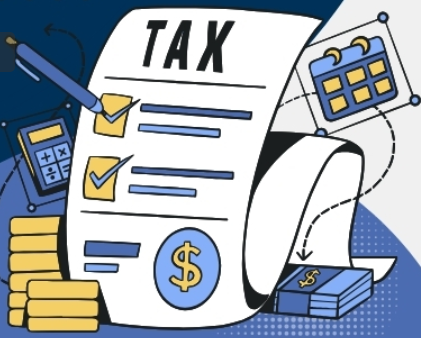
The structure a business chooses affects far more than paperwork; it determines how the business is taxed, how profits are reported, and how owners receive income. For small businesses, choosing between an LLC, S-Corp, sole proprietorship, or C-Corp can result in significant differences in tax treatment. The wrong structure can increase tax liability or create unnecessary compliance burdens. The right one can reduce costs, simplify reporting, and support long-term growth.
Each business structure comes with unique tax rules, which is why working with a qualified tax consultant can help business owners select the option that best aligns with their income level, goals, and management preferences. Understanding the relationship between business structure and taxes is essential to building a stronger foundation for success.
LLC vs. S-Corp: Know the Tax Differences
LLCs and S-Corps are popular among small business owners, but they function differently from a tax perspective. LLCs offer flexibility, allowing owners to report income directly on their personal returns. However, this often results in paying self-employment tax on the full income amount.
In contrast, S-Corps may offer tax savings by allowing owners to receive part of their income as a salary and the rest as a distribution, which can reduce payroll taxes. However, S-Corps require more compliance steps, including running payroll and filing additional IRS forms.
Regularly reassessing your entity type, especially during growth periods, helps maintain tax efficiency.
Sole Proprietorship: Simple but Limited
Many new business owners default to a sole proprietorship because it’s easy to set up. But from a tax efficiency standpoint, it has limitations. Income is taxed at the individual level, and there are fewer options for reducing self-employment tax.
Sole proprietors also tend to mix personal and business finances, which complicates deductions and recordkeeping. If revenue is growing or the business has employees, switching to an LLC or S-Corp may be more beneficial.
Consider Liability and Compliance Requirements
Beyond taxes, each business structure carries different levels of legal liability and compliance. LLCs and corporations provide legal protection for personal assets, while sole proprietorships do not. However, they also require more formal recordkeeping and reporting.
Working with a CPA or tax planning consultant guarantees that business owners understand both the tax and legal implications of each choice. It also allows for better planning when changes in ownership, revenue, or operational scale occur.
Plan for Growth and Flexibility
As a business evolves, so should its structure. Regular reviews with a tax advisor or certified public accountant near you can help determine when to switch from one structure to another. Changes in income, team size, or services often justify a new approach. For example, transitioning from an LLC to an S-Corp after reaching a certain income level may reduce liability while improving compliance outcomes.
Entity Choice Made Simple with Nidhi Jain CPA
How Nidhi Jain CPA Helps Business Owners Choose the Right Structure
Nidhi Jain CPA supports small business owners through every stage of entity planning, offering insight into how business structure and taxes work together. From selecting the best setup to reviewing compliance obligations, she helps clients minimize liability and reduce unnecessary tax costs. Whether you’re looking for business tax filing, tax planning in the Bay Area, or support from a trusted tax consultant, informed structure decisions start here.
Visit the blog for more tax tips and insights.




